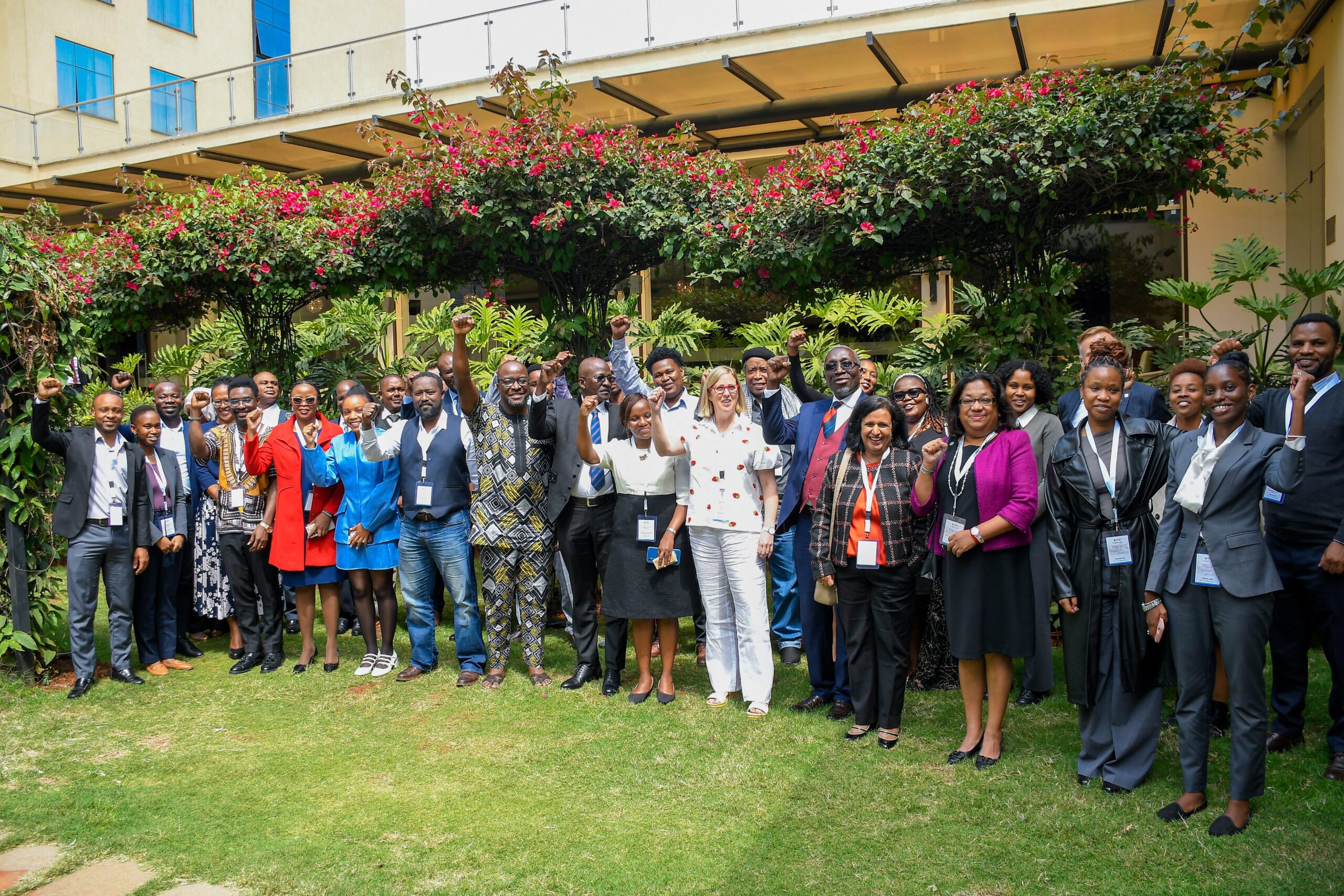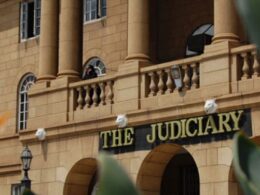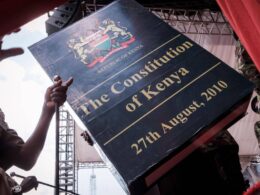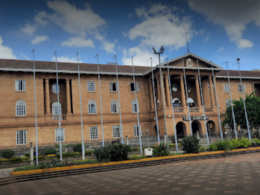By Annette Wambulwa
ICJ says only 46 per cent of public entities sampled disclose information on procurement
In Summary
- Open contracting is the key to reduce corruption which will in turn bring down the backlog of graft cases in court.
- ICJ Kenya says most public entities have not embraced the open or public procurement which in turn has given room for corruption to thrive in public offices.
There are hundreds of corruption cases currently active in courts mostly from County governments and state corporations involving billions of taxpayer’s money that was lost through procurement.
At least three former governors are in court charged with corruption in relation to awarding of tenders when they were still county bosses that allegedly led to misappropriation of public funds.
Five current governors are also facing corruption charges at the Anti-corruption court where it is alleged they misappropriated money, with most of the allegations being linked to procurement.
The governors currently facing charges include Ali Korane (Garissa), Sospeter Ojaamong (Busia), Moses Lenolkulal (Samburu), Muthomi Njuki (Tharaka Nithi) and Okoth Obado (Migori).
However, to reduce the cases of rampant corruption in public offices and county government and help build the economy, Kenyan Section of the International Commission of Jurists says the solution lies in embracing open contracting.
Open contracting is where an institution discloses all information to the public at all the stages of procurement from planning, tendering, awarding, contracting and implementation.
It is anchored on openness, transparency and accountability, Article 35 of access to information, Chapter 12 of the constitution on public finance management and Article 227, which emphasises the principles of fairness, equity, transparency, competitiveness and cost effectiveness.
Open contracting allows the public to oversight the procurement process, the money involved across the chain of public contracts from the planning to the tendering and awarding, contracting and later implementation.
ICJ Kenya says according to the latest report by the Commission on Administrative Justice, only 46 per cent of public entities sampled disclose information on procurement.
According to the commission, public institutions mostly only disclose information on advertised tenders and not on tenders awarded.
“This indicates the gaps in access procurement and contract information from public agencies, with most agencies still not proactively disclosing information as required under the Access to Information Act,” ICJ Kenya says.
The corruption case with the highest amount of money allegedly lost in tendering is the Kimwarer and Arror Dams Scandal which involves the loss over Sh50 billion.
Former Treasury CS Henry Rotich was charged alongside PS Kamau Thugge in 2019, but early this year the DPP discharged Kamau from the case, he will now testify against his former boss.
According to the charge sheet, Rotich and four others on diverse dates between December 17 2014 and January 31, 2019, conspired to defraud government $501,829,769.
They allegedly entered into the construction and development of Kimwarer and Arror Dams, a project they knew was not approved. They also failed to comply with the law on public/private partnership which led them to improperly secure a commercial loan that made Kenya a financier and a borrower.
The other high profile corruption case is NYS which has two different cases active in court from two different regimes.
The first one was where PS Peter Mangiti and others were charged with loss of Sh791 million and later in 2018 PS Lillian Omollo was charged with loss of Sh400 million from NYS.
ICJ Kenya notes that if the ministry had changed tact after the first case and incorporated open contracting in their procurement process, maybe the second scandal could have been avoided.
County governments are perceived by the public to be the most corrupt thus derailing devolution.
In the cases before court, some governors are alleged to have awarded tenders to proxy companies related to them or their spouses and children who are also charged alongside them.
Only two County governments— Makueni and Elgeyo Marakwet—have so far embraced open contracting.
Makueni Governor Kivutha Kibwana says by embracing open contracting in his county, anyone can see what the county is buying and who got the contract, meaning transparency in fighting corruption.
According to Hivos East Africa, Makueni was the first county to have an open contracting data portal in 2018.
Back in 2018 when he was unveiling the portal, Kibwana called on institutions to adopt open contracting as one of the ways to stop rampant corruption.
He said open contracting ensures transparency and accountability in all government processes hence locking out any chance for corruption and ill practices.
Elgeyo Marakwet has also followed suit and they have a portal where the public can follow up on the progress of procurement for the county.
On August 31 last year, in the wake of the Kemsa scandal, President Uhuru Kenyatta directed the Ministry of Health to come up with a transparent open method and mechanism through which all tenders and procurements done by the agency would be made available online.
This is despite existing legislative requirements including the Public Procurement and Disposal Act, and the Regulations under the Act and policy declarations such as Executive order 2 of 2018 that directed all public procuring entities to maintain and continuously update and publicise complete information of all tenders awarded.
However, a scan through the MOH website, no Kemsa tender is on the websites or the public procurement information portal.
According to 2018 data from ICJ Kenya, most procurement information on the portal was found to be historical because the portals was not updated in real-time and there were no active tenders.
They also noted that not all stages of procurement were disclosed and that involved disclosing information from the planning, tendering, awarding, contracting and implementation phase.
“Across the procurement cycle, very limited information was disclosed at each stage. In addition, the tenders and contracts disclosed did not have any supporting documentation,” the report states.
However, a look at the Elgeyo Marakwet county website will lead you to the open contracting page which has some detailed information on the tenders.
When you click on it, it shows the total contracts as at May 27 this year were six at a cost of Sh5,020,790 further breaking down tenders and what each costs.
Makueni county portal also has the same information that links you to the various tenders and the different stages that they are in.
Lawyer Shadrack Wambui say open contracting increases transparency and eliminates opaqueness which gives chances of people manipulating tenders.
On why he thinks majority of institutions have not embraced it, Wambui says it’s because people lack values.
“People lack values and that is why we have put in our constitution under Article 10 the national values and principles so that we can always be reminded,” he says.
He further says it’s a problem of the value system where people in this country adore corruption and that’s why there is difficulty in implementing any open process.
According to ICJ Kenya, the benefits of open contracting include saving taxpayer money, ensuring better utilisation of public resources, better delivery of essential public goods and services, inspire integrity, curb fraud and corruption and it also creates an environment with equal opportunities for businesses.
Advocate Mwendwa Munene says open contracting should be adopted as a model of floating tenders because of its transparent nature.
“It would be easier for members of the public to scrutinise the process to measure if the same lives up to the constitutional threshold set out under Article 227 (1) of the constitution which sets out transparency as one of the core values in public procurement,” Munene says.
He says where a public organisation uses this model any person who feels that such process is marred by even the slightest irregularity including corruption, they can challenge the outcome.
This story was first published in The Star. ICJ Kenya has only republished it.











